The Biplane
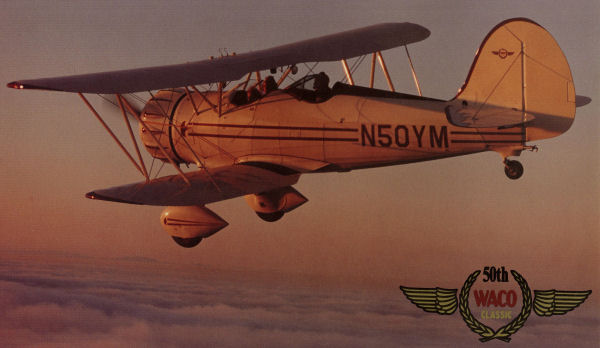
The Spirit of Adventure
This incredibly beautiful biplane came into my life in 1993, brand new from the factory in Lansing, Michigan.
It was the 50th one they built, so they were very proud of it.
I told them I couldn't fly, but that didn't seem to matter.
Until I tried to fly it for the first time in a crankin' crosswind.
After two hours of torturing the biplane, chief pilot Carl Dye said:
"Tell me again how long you've been a pilot?"
I told him: "I'm not a pilot."
He says: "We don't really teach people how to fly here."
So I told him: "Let's get this biplane back to San Diego, and I'll figure it out from there."
And so the adventures began...
This is the airplane I used to learn how to fly.
It was an extraordinary feeling to finally fly solo,
and then to earn my Private Pilot license (November 18, 1993) in this work of art.
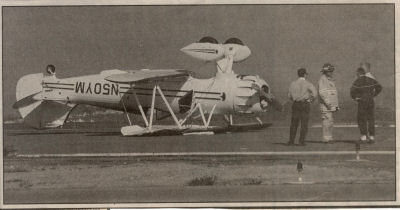
(click for BIG image)
One of my instructors (some wannabe pilots need more than one teacher) decided to do a check flight
after some routine maintenance, but he came in for a landing with the parking brake on.
Boy, was he surprised when it flipped over the instant of touchdown!
He was unhurt (except for his pride), but the biplane was a total loss.
On that day, February 24, 1994, he earned the call-sign "Flipper".
I traded the broken bits, and the insurance settlement, for a new biplane.
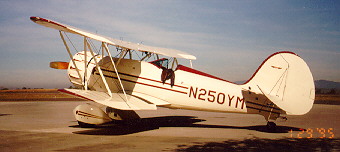
"The Spirit of Adventure II"
This is biplane number two, delivered new in May 1994,
the biplane used in the USA and European adventures.
It was manufactured from scratch (not restored),
according to the
specifications of a 1935 Waco YMF-5.
Although it was at the time a 60 year old design,
it had a state-of-the-art instrument
panel in the cockpit.
Here's a partial list of the "bells and whistles":
- Horizontal Situation Indicator (HSI)
- Traffic Collision Avoidance Detection (TCAD)
- Global Positioning System (GPS), Arnav Star 5000 (navigation, groundspeed, direction)
- Moving Map Display, Eventide Argus 7000
- Nav/Comm: two KLX155's
- Stormscope BFG
- G-meter
- Vertical Speed Indicator (VSI)
- VOR/Glideslope
- Vacuum operated Artificial Horizon
- Magnetic Compass
- Turn coordinator
- Altitude
- Engine speed, rpm
- Manifold pressure
- Exhaust gas temp
- Cylinder head temp
- Oil temp
- Oil pressure
- Airspeed
- Alternator output, Volts, amps
- Battery indicator, volts
- .... probably more stuff I'm forgetting right now...
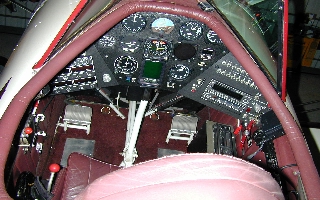
The aircraft is fully certified for flying instruments-only, and for night flying.
Total time on the engine and airframe is about 630 hours since it was built.
Time between overhauls on the engine is 1200 hours. It has never been in an accident or incident.
The biplane is also outfitted with a video camera in the right lower wing, wired to a
VCR and monitor in
the cockpit. With this setup I can make videos (or watch them!) as I fly.
Other special features: Auxiliary fuel tanks. Total fuel 72 gal. Total endurance 4+ hours.
Range approximately 400 miles depending on winds and using cruising airspeed of 100 mph.
Baggage: 75 lbs. in rear baggage compartment, 25 lbs in the front baggage compartment.
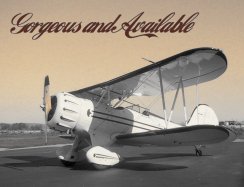
My old Waco is now back in California, flying rides out of
Attitude Aviation at Livermore airport.
For more information and photos of this unique aircraft,
click on the link below and visit the website of the Waco manufacturer,
in Battle Creek, Michigan:
Classic Aircraft Company
|




